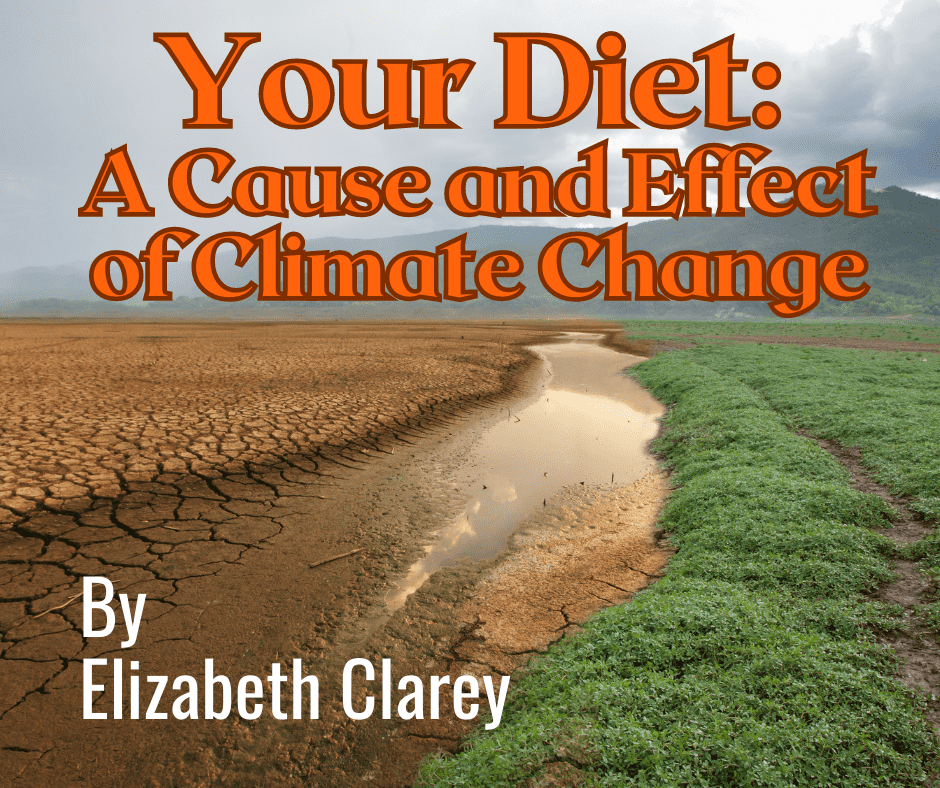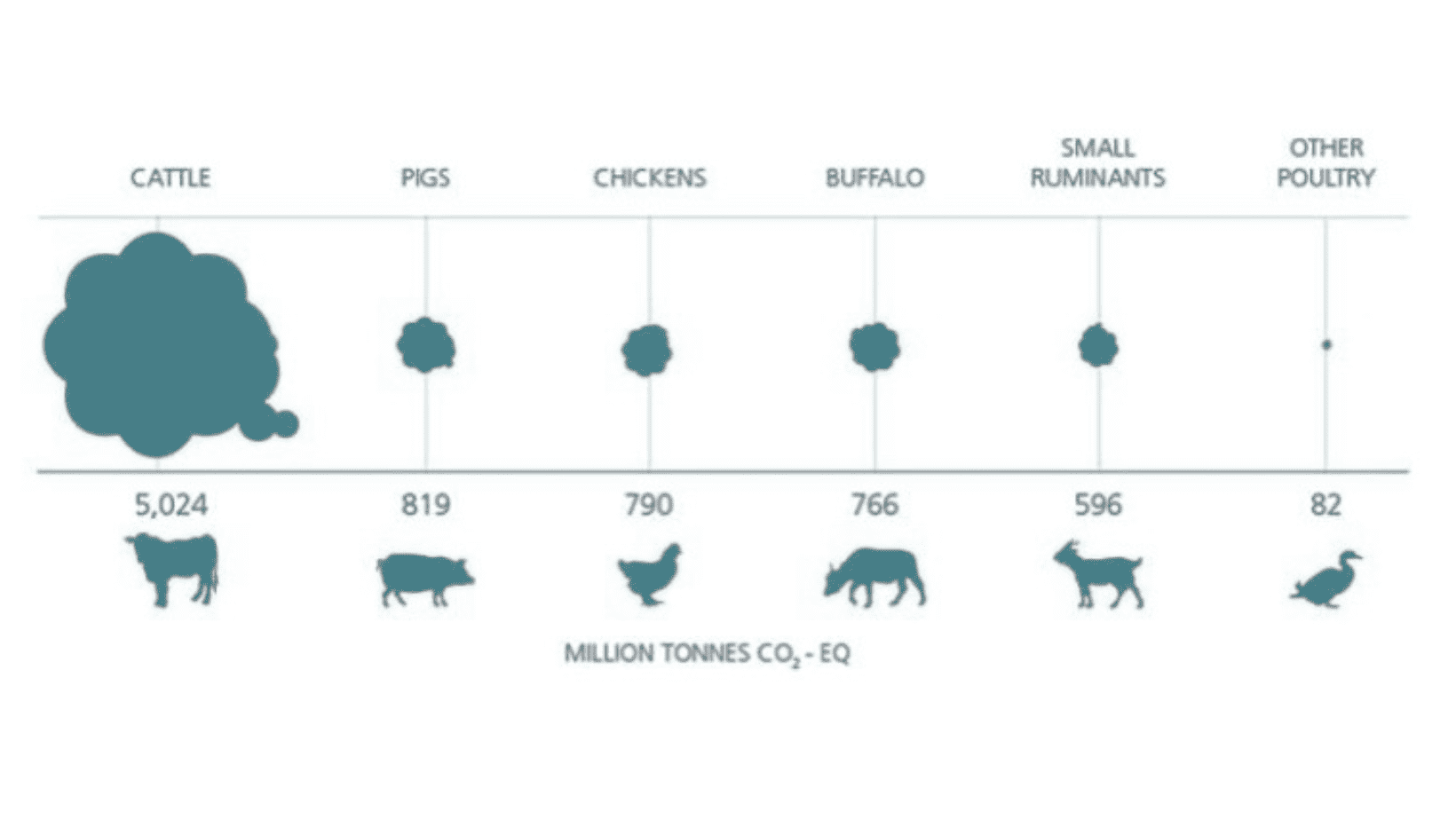
Your Diet: A Cause and Effect of Climate Change
By Elizabeth Clarey
Next time you order a bacon cheeseburger, remember that livestock farming, (primarily cattle) is responsible for 14.5% of greenhouse gas emissions. Cattle release methane from belches and flatulence, which is more destructive to the environment than CO2. The livestock industry destroys climate-capturing forests (like areas of the Amazon rainforest) for farm use. Though the UN wants to cut livestock emissions and many countries have made pledges to reduce livestock-related emissions, no concrete plans have been made to do so.
Adopting a vegan diet can be one of the most effective actions an individual can do in the fight against climate change. Even greatly reducing meat and dairy consumption can have an enormous impact. If half of all meat-based meals were replaced with vegan meals, greenhouse emissions could be slashed by 35%.
Food waste is another huge contributor to greenhouse emissions. People in high-income countries waste billions of tons of food each year. Rotting food in landfills releases methane and is responsible for 8% of global greenhouse emissions.

Climate change is also expected to increase rates of food insecurity and malnutrition, especially among people in poorer nations.
As the world gets hotter, farmers will see smaller and smaller yields of stable crops. Not only does this mean less food, but also higher prices for that food. Most of those who are at risk live in Southeast Asia, Sub-Saharan Africa, and Latin America. In addition, higher levels of CO2 in the atmosphere reduce the levels of micronutrients in crops. Other climate-related effects, like increased numbers of crop-eating insects and more frequent natural disasters will damage crop yields.
Addressing climate change will require a coordinated effort. As an individual you can make big difference by buying and consuming less meat and dairy. Policies will also need to reflect this priority of moving away from meat-based diets by ending subsidies for animal agriculture and taxing animal-based foods. You can also reduce food waste by composting, storing food correctly, saving and eating leftovers, and inventory the foods you have so you don’t overbuy.
improving social protection programs like cash transfers can protect people living in low-income countries who may be at risk of malnutrition and economic devastation from climate change can be by. These have been shown to improve nutrition and food security during environmental disasters. In addition, experts recommend implementation of early warning systems and programs to improve resilience. In some areas, climate change has already forced farmers to experiment with different crops or trying to plant a variety of crops in case one fails.
Our food systems will be irrevocably changed by global warming. Like most climate issues, the solution will require effort on all fronts.


